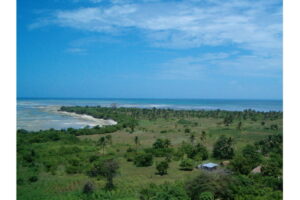
Tanzania’s unwavering commitment to combating poverty has earned international recognition, with the World Bank recently commending the country’s success in implementing the previous and current phases of the Productive Social Safety Net Program under the Tanzania Social Action Fund (TASAF). As the nation prepares for the next phase of TASAF, it stands at a pivotal moment to build on past successes and integrate innovative strategies for sustainable progress.
The successes of previous TASAF phases
One of TASAF’s most remarkable achievements has been its impact on poverty reduction. By delivering targeted, community-driven initiatives, TASAF improved access to essential social and economic services, benefiting more than 1.9 million people across various districts. These initiatives enhanced infrastructure including schools and health centers, and created local economic opportunities, laying a foundation for long-term development.
Community empowerment emerged as a cornerstone of TASAF’s success. Through participatory approaches, communities actively identified their needs and managed development projects. This approach fostered a sense of ownership and accountability, transforming beneficiaries into stakeholders invested in sustaining these projects.
Moreover, TASAF channeled substantial financial resources into projects aimed at improving livelihoods, particularly for vulnerable groups. The introduction of conditional cash transfers provided direct support to households, enabling them to meet basic needs while fostering economic growth and self-reliance.
The challenges of previous TASAF phases
Despite these successes, TASAF encountered significant challenges. Capacity constraints at the local government level often hindered effective project implementation, leading to delays and inefficiencies. The lack of skilled personnel and resources limited the program’s potential impact.
Sustainability posed another critical concern. TASAF’s heavy reliance on external funding raised questions about the long-term viability of its initiatives. Many local governments struggled to maintain program benefits once TASAF’s direct involvement ended, highlighting the need for robust sustainability planning.Inconsistent execution across regions further exposed disparities in local government capacities, resulting in uneven project outcomes.
Key recommendations for TASAF’s next phase
As Tanzania advances into the next phase of TASAF , it has the opportunity to address these challenges and build a more resilient and impactful program. The following measures are recommended for inclusion:
Strengthening Integration with Broader Development Initiatives
TASAF next phase should align closely with national and international development programs, including sector-specific initiatives in agriculture, health, and education. Integrating climate-focused programs will ensure that poverty alleviation efforts are both comprehensive and sustainable, expanding their reach and effectiveness.
Prioritizing Climate Resilience and Adaptability
Given the growing threats posed by climate change, the next phase must incorporate climate adaptation and resilience measures. Training programs on sustainable farming, water conservation, and renewable energy solutions will empower communities to address environmental challenges and enhance economic stability.
Fostering Community-Driven Climate Initiatives
Building on the participatory approach of earlier phases, TASAF next Phase should integrate climate action into local development plans. Community-driven initiatives, such as training in climate literacy and sustainable resource management, will ensure tailored solutions that address local needs while fostering ownership and engagement.
Securing Sustainable Funding Models
To ensure sustainable funding and broaden its impact, TASAF’s next phase should prioritize diverse financing options, including public-private partnerships and climate finance initiatives. Collaborating with local and international organizations, NGOs, international agencies, and the private sector can provide additional resources, expertise, and innovative solutions. These partnerships can amplify TASAF’s efforts by introducing advanced technologies, knowledge-sharing platforms, and new funding mechanisms to support poverty alleviation and climate action initiatives effectively
As Tanzania embarks on TASAF next Phase , the integration of poverty alleviation and climate action is more critical than ever. By addressing past challenges, leveraging partnerships, and adopting sustainable strategies, TASAF can transform into a model for holistic development. This next phase is not just an opportunity to reduce poverty but also a chance to build climate resilience and ensure a brighter, more sustainable future for all.
Frank Abel is a one of the stakeholders of sustainable development focusing on the effects of Climate Change. He can be reached via +255 753 73 23 55.















